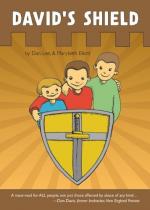|
This section contains 709 words (approx. 3 pages at 300 words per page) |

|
SOURCE: A review of A Handbook for Drowning, in VLS, No. 102, February, 1992, p. 7.
In the following unfavorable review, Seligman charges that Shields's literary technique detracts from the plots, themes, and potential "warmth" of the stories in A Handbook for Drowning.
The David Shields whose first book, Heroes, appeared in 1984 barely resembles the novelist who brought out Dead Languages five years later. The earlier Shields was uncertain, a little windy, and ordinary; by 1989 he had become an artist, spare and astringent. Dead Languages concerns a stutterer. Shields had researched disfluency, understood its devastations, and knew how to work a metaphor so cruelly that he raised the book to another, richer plane. The richness made up for its deficits: the familiar coming-of-age story; the angry fixation on parents—which, like headbanging unhappiness, is a mark of adolescence. He didn't know what to do with his story after a while; the...
|
This section contains 709 words (approx. 3 pages at 300 words per page) |

|


